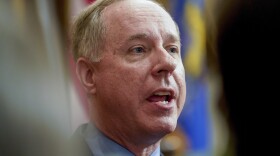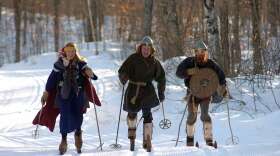The new coronavirus is crippling countries around the world, forcing major cities into lockdown. Production has slowed, as some businesses have had to pause. The sluggish commercial climate along with travel restrictions have led to a drop in air pollution.
Experts, including UW-Milwaukee distinguished professor of atmospheric science Paul Roebber, say the unintended relief the environment is experiencing will be temporary. But Roebber says lessons can be learned by considering similarities between the outbreak and climate change.
He says to blunt the worst impacts of either challenge, early action must be prioritized.
“An example of that for coronavirus is, of course, by the time it reaches a critical stage, it has already infiltrated a large percentage of the population so if you start taking steps at that point you have a lot less leverage in controlling the outcome,” Roebber says.
Yet, Roebber says there is hope. While both the coronavirus and the climate must be addressed, “neither are existential threats to future of humanity — they are very serious, but not existential threats,” he says.
"Nature doesn't care about our national boundaries — it wants to do what it will do, and that's just what it will do."
Roebber says sound policy informed by good science will bring solutions.
“As we see how coronavirus plays out and different responses to that around the world, there are a lot of lessons to learned about good ways to respond and less good ways to respond. I think if we can take something from that for the future that would be a valuable thing for us to understand how to understand, how to deal with these kind of things,” Roebber says.
But he says the lessons don’t stop there.
“Another important point about the virus and about climate change is it just demonstrates once again how connected the world is. Nature doesn't care about our national boundaries — it wants to do what it will do, and that's just what it will do," he says.
Have a question about climate change and how it impacts your life? Submit your questions below.
_






